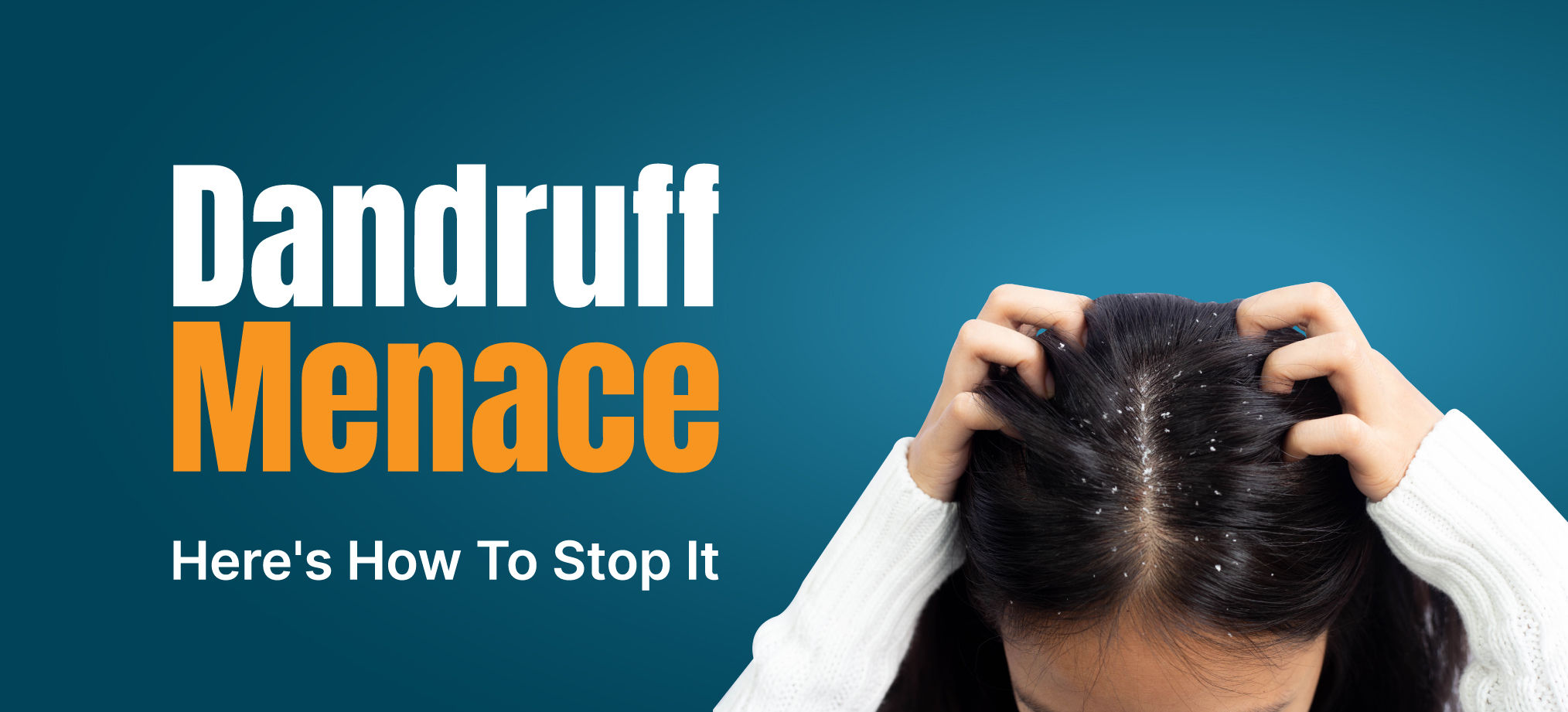General Health
Don’t Let Dandruff Irritate Your Scalp
3 min read
By Apollo 24/7, Published on - 09 November 2021, Updated on - 19 February 2024
Share this article
1
30 likes

Dandruff is one of the most common scalp disorders that affects everyone but is more commonly seen in the pre-pubertal age. Dandruff appears as white flakes on the scalp and one may experience dryness and itchiness. Dandruff can also be seen in other parts of the body such as eyebrows, beard, moustache, chest, and shoulders. While poor hygiene is believed to be the main cause, several medical conditions can result in dandruff.
What causes dandruff?
Not washing hair frequently can cause dandruff. However, several underlying conditions can lead to dandruff that includes:
- Seborrheic dermatitis: Seborrheic dermatitis is a skin condition that results in red, dry, itchy skin with flakes on the scalp, ears, eyebrows, armpits, upper back, and genitals. The patches on the face and scalp can also appear greasy.
- Cradle cap: It is a type of seborrheic dermatitis seen in infants, which results in thick, greasy, yellowish crusts on the scalp, eyebrows, and nappy area.
- Eczema: Eczema, also known as atopic dermatitis, is a condition that makes the skin dry, red, itchy, flaky, and inflamed.
- Contact dermatitis: It is a type of eczema that makes the skin red, inflamed, flaky, and itchy. The affected person may experience blisters on getting exposed to an allergen such as poisonous plants, latex, rubber or hair dyes.
- Psoriasis: Psoriasis is a chronic skin disease that may result in red, itchy scaly patches on the scalp, elbows, trunk and knees. These symptoms flare for a few weeks and then resolve for a while followed by a period of remission.
- Tinea capitis: Also known as ringworm infection, tinea capitis is a fungal infection of the scalp that results in a red or silver coloured dandruff-like rash on the scalp. It can also cause patchy hair loss.
How to deal with dandruff
Usually, dandruff can be managed at home with the help of anti-dandruff shampoos. There are different ingredients in these shampoos, which target specific problems. Some of these ingredients include:
- Zinc pyrithione: It is an antibacterial and antifungal agent that helps in treating fungal infections.
- Salicylic acid: It helps in reducing scaling and flakes.
- Selenium sulfide: It helps in treating fungal infections of the scalp.
- Ketoconazole: It is an antifungal agent that helps in reducing flaking, scaling, and itching.
- Coal tar: It reduces inflammation, scaling and itching.
One should consult a dermatologist if they experience any allergic reactions to anti-dandruff shampoos.
Can dandruff be prevented?
There is no specific way of preventing dandruff. However, measures that may help improve hair health and reduce dandruff include:
- Consume a healthy diet: Probiotics present in yoghurt, curd and fermented foods and omega-3 fats found in fish, flaxseeds and walnuts can help keep the scalp hydrated. Consumption of Biotin (Vitamin B7) rich foods such as egg yolk, legumes, sweet potatoes, and mushrooms can also help reduce dandruff.
- Manage stress: Studies have shown that stress can trigger or worsen various skin conditions such as psoriasis and eczema that results in dandruff.
- Practice hair care: People with oily hair should wash them regularly to prevent dandruff. Massage the hair and scalp gently to loosen the flakes and then wash them thoroughly. People with dry and sensitive scalp should shampoo them less frequently and condition them often.
- Prevent hair damage: Limit the use of hair-styling products as they can build up on the scalp and hair, making them greasy.
Conclusion
Dandruff can occur due to several medical conditions including psoriasis, eczema, and dermatitis. Dandruff can be managed at home with over-the-counter available anti-dandruff shampoos. However, one should consult a dermatologist if the flakes appear on other parts of the body apart from the scalp or it is accompanied by rashes, itching and blisters.
You can refer here for more FAQs on Dandruff.
General Health
Leave Comment
Recommended for you

General Health
5 Medicines You Should Never Consume without a Prescription
Consuming prescription medicines such as statins or steroids without consulting a doctor can put people at risk of severe allergic reactions, some of which can be life-threatening.

General Health
World Contraception Day: Everything you need to know about contraception
World Contraception Day (WCD) was first observed on 26th September 2007 to improve the understanding of birth control and family planning.
.jpg?tr=q-80)
General Health
Catching Cold Too Often? These Tests Can Reveal Why
Frequently falling sick with colds? Learn how tests like IgE, CRP, and CBC reveal hidden causes like allergies, inflammation, or immune issues.
Subscribe
Sign up for our free Health Library Daily Newsletter
Get doctor-approved health tips, news, and more.
Visual Stories

Plant-based Foods That Are a Great Source of Iron
Tap to continue exploring
Recommended for you

General Health
5 Medicines You Should Never Consume without a Prescription
Consuming prescription medicines such as statins or steroids without consulting a doctor can put people at risk of severe allergic reactions, some of which can be life-threatening.

General Health
World Contraception Day: Everything you need to know about contraception
World Contraception Day (WCD) was first observed on 26th September 2007 to improve the understanding of birth control and family planning.
.jpg?tr=q-80)
General Health
Catching Cold Too Often? These Tests Can Reveal Why
Frequently falling sick with colds? Learn how tests like IgE, CRP, and CBC reveal hidden causes like allergies, inflammation, or immune issues.